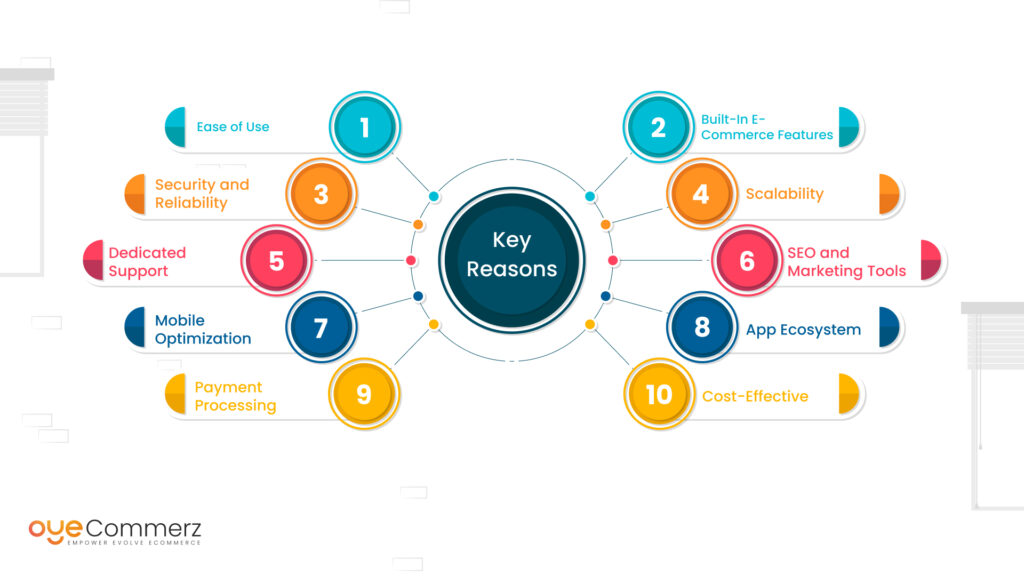In the ever-evolving landscape of eCommerce, choosing the right platform is crucial for your business's growth. If you’re currently using WordPress and thinking about a migration to Shopify, you’re not by yourself. Numerous businesses are switching to take advantage of Shopify’s powerful capabilities, ease of use, and expandability. This guide will take you through the steps of migrating from WordPress to Shopify smoothly, guaranteeing that you unlock your eCommerce potential.
Why Switch from WP to Shopify?
Before diving into the migration process, it’s crucial to know why this change can be beneficial for your online store:
Intuitive Design: Shopify offers an intuitive system that makes easier store handling, enabling for non-technical users.
Flexibility: As your company expands, Shopify can accommodate increased traffic and transactions without affecting performance.
All-in-One Solutions: Shopify provides built-in tools for search engine optimization, analytics, payment handling, and more, minimizing the necessity for several plugins.
Robust Protection: With Shopify, you benefit from advanced security measures that protect confidential customer information.
Steps for a Smooth Migration
Migrating your eCommerce site from WordPress to Shopify involves key phases.
Here’s steps to ensure a smooth transition:
Outline Your Migration Plan
Kick-off by mapping out your migration plan. Pinpoint which aspects of your existing site you wish to migrate, such as:
Item details
User details
Purchase logs
Posts
Pick the Right Migration Solution
Depending on your preferences, select a migration package that fits your store. Migration upgrade your eCommerce platform experts provides several choices:
Entry-Level Plan: Perfect for boutique stores with limited products.
Regular Option: Suitable for growing businesses with more complex requirements.
Comprehensive Solution: Excellent for big stores needing broad customization.
Secure Your Content
Prior to beginning the migration, ensure that you have a complete backup of your WP site. This task is crucial in the event anything goes wrong during the migration.
Retrieve Your Content from WordPress
Utilize tools or custom scripts to extract critical data from your WordPress site:
Items
Customers
Transactions
Content pieces
Upload Data into Shopify
Once you have your content extracted, employ Shopify’s import tools or third-party apps to migrate your data into your updated store. Verify that all data is correctly organized and aligned.
Customize Your Shopify Site
Following uploading information, adjust your Shopify store’s theme to align with your brand identity. Look into engaging a specialist if you want detailed customization.
Establish TransactionOptions and Logistics
Configure payment gateways and logistics options in Shopify to facilitate a smooth transaction Shopify plugin alternatives experience for customers.
Apply Search Engine Optimization Standards
To maintain your search engine rankings during the transition:
Set up 301 link updates from old URLs to new ones.
Update meta tags.
Adjust visual content and copy for search engines.
Test Your New Store
Ahead of publishing, thoroughly test your migrated platform. Look out for any broken links, payment processing issues, or missing data.
Launch Your Site
After everything is in order, it’s the opportunity to go live! Announce the transition to your users and encourage them to discover the new capabilities of your Shopify store.
Post-Migration Guidance
Post releasing your Shopify store, continued help is essential. Explore engaging professionals who can guide with:
Site maintenance
Promotional campaigns
Improvement strategies
Conclusion
Migrating from WordPress to Shopify can be a crucial move for your digital business. By following this guide and working with tools like those offered by OyeCommerz, you can achieve a smooth transition that boosts your business potential. Embrace the shift and realize the potential of Shopify today!
